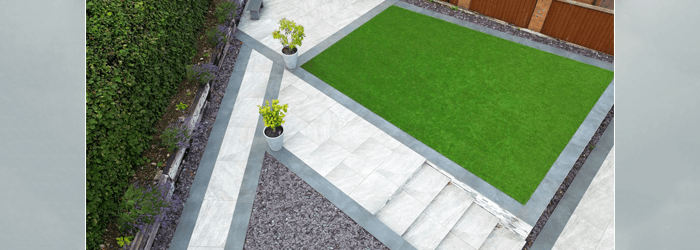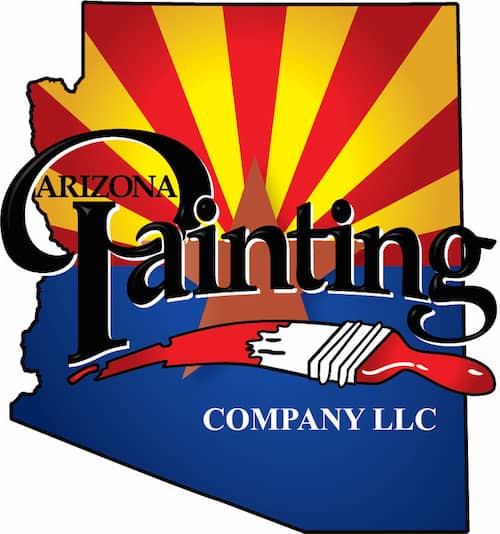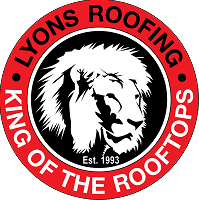In our great state of Arizona, living outside in the right season is the real deal. Those living in the northern and higher climates will spend spring, summer, and some of the fall outside, while our desert brethren tend toward the winter, spring, and late fall. Regardless of where you live, your yard probably plays a role in your lifestyle and entertainment.
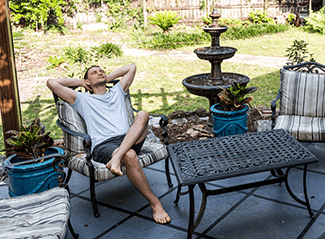 Our outdoor spaces come in so many varieties it would be hard to focus on one specific type. Therefore, we will look at a common aspect of all outdoor spaces; the floor.
Our outdoor spaces come in so many varieties it would be hard to focus on one specific type. Therefore, we will look at a common aspect of all outdoor spaces; the floor.
Outdoor flooring runs the gamut from concrete to wood and everything in between. Some types work better for spaces that get exposed to the weather such as
- Patios
- Pool decks
- Sitting areas
- Raised decks
- Outdoor kitchen areas
These outdoor flooring materials highlight the good, the bad, and the ugly!
- Concrete. A common outdoor flooring material, this hard surface is fairly inexpensive to install, durable, and can be colored to enhance a landscaped area. There are different types of finishes such as a broom finish for a non-slip surface. Coarse finishes can be hard on bare feet, though. Concrete, if not correctly sealed every couple of years (depending on exposure to the elements) can be porous and become stained. When exposed to sunlight, it can be too hot to walk on. It is, however, potentially the longest-lasting surface out there. Unless you have the tools and experience to install and finish concrete, you might want to hire a professional.
-
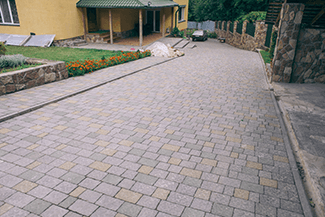
Concrete Pavers Concrete Pavers. This option has become quite popular. Their durability and versatility of shapes, colors, and sizes makes concrete pavers quite desirable. Consider some of the options from Belgard. A plus here is if any pavers become damaged, they can easily be replaced without tearing up large areas. With some instruction, you could create the base and install the pavers yourself. If intricate designs require cutting the pavers to shape them as part of the plan, you may want to hire a professional.
- Brick Pavers. This alternative can be quite beautiful. Brick is durable and is similar to concrete pavers concerning replacement if damaged, as long as they are set without grout. If you use mortar to hold the brick together, replacement can be a problem. Using mortar will probably require a skill level most of us don’t have.
- Porcelain Tile. This option has become quite popular over the past several years. This tile is stain, mold, and slip-resistant. It is durable and comes in many different colors. It can really spruce up your outdoor space, whether covered or exposed. Installation should be done by a skilled tile setter, and if that is you, GREAT because tile and installation can be among the pricier alternatives.
- Ceramic Tile. This affordable alternative to porcelain tile is quite diverse in styles and colors. Ceramics are not as durable as porcelain and tend to be porous, therefore, making them susceptible to staining; plus, they can wear down more quickly. A solid base is best for installation. If you have the tools and equipment, doing it yourself can save you a few dollars.
-
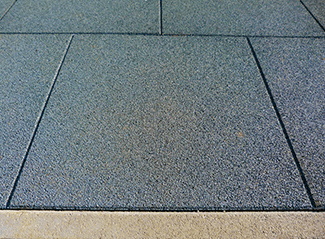
Ruber Tiles Rubber Tiles. This is a unique alternative you may want to consider. Rubber tiles are no longer relegated to the gym floor. Outdoor use is breaking into the mainstream. The flooring is soft, shock absorbent, non-slip, weather-resistant, and quite simple to install, making it a good candidate for your DIY project. The downside is that they do not replicate the look of a natural surface. On the upside, they are made from 100% recycled content.
We have looked at several ground-level solutions for your outdoor floor. Now, let’s take a look at the raised deck options.
Raised Deck Options
Many of our listeners and readers have second floors or live in a mountainous region where raised decks may be the only outdoor yard space. Several of the flooring options mentioned above can be used in a raised deck application. However, the construction of the deck to accommodate a solid surface can significantly increase costs, including maintenance. Typical deck surfaces have spacing between the planking for drainage and decreased water retention.
There are basically two types of decking material; wood and composite wood.
Wood types that are good for decking come from species naturally prone to resist rot from moisture and insects, such as cedar and redwood. Both should be treated to resist moisture, as prolonged exposure without treatment will lead to discoloration, graying of the material, as well as splitting and cracking.
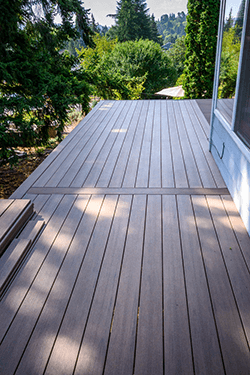
In sealing natural wood decks, we always recommend a penetrating sealer as opposed to a topical waterproofing treatment.
Composite wood is made from wood particles combined with a resin or polymer mixture typically proprietary to the specific manufacturer. Some products contain a high degree of recycled material as well. Installation varies from several concealed attaching methods to the more traditional screw-down process, making a DIY project possible. Usually more expensive than wood, composites need little or no upkeep beyond cleaning. They can withstand the elements, including sunlight, and come in many colors.
However, on the desert floor, in direct sunlight they can become extremely hot. The best place to use composite is under the shade of a patio roof or under a shade tree like the ponderosa pine or rocky mountain juniper.
With all of us living outdoors at some time of the year, the flooring we choose can enhance the experiences we want to have. Check out this blog for help in making your flooring choice decisions.
Send us pictures of your projects. Y’all know we love looking at them!
###
Homeowner Handbook | #OutdoorFloor
PODCAST
A look at outdoor flooring. Some types work better for spaces that are exposed to the weather especially with summer heat. Plus homeowner questions on roof ridge vents, water heater, galvanized plumbing, roof coatings and our favorite way to cool your home and save money: Super Cooling!
Podcast Archive With Expanded Content and Resources
PHOTO CREDIT
- Shutterstock

